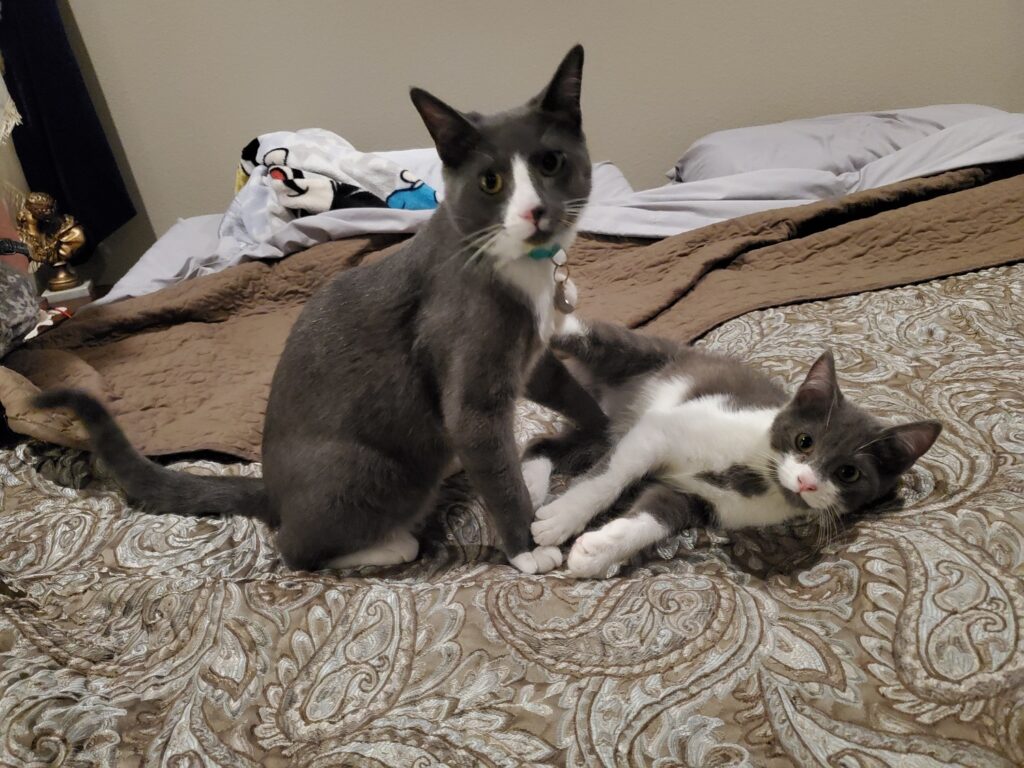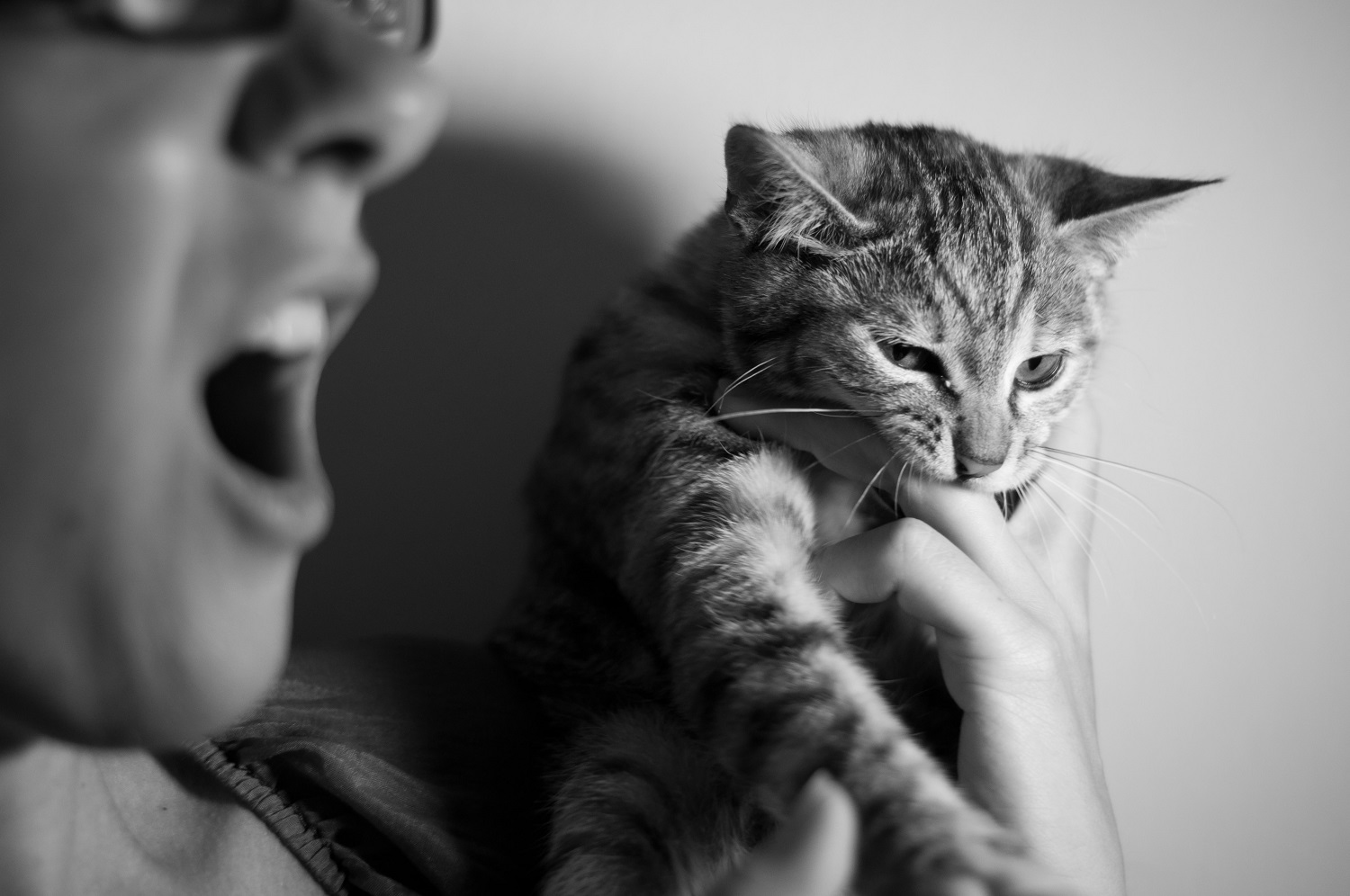Kittens are cute, chaotic, and occasionally armed with tiny daggers. Those playful nibbles and pounces might be adorable at first, but when your hands start looking like you’ve been attacked by a miniature lion, it’s time to set some boundaries.
Let’s get your tiny hunter to play nice.
Why Kittens Bite and Scratch in the First Place
Before we go full behavior bootcamp, it helps to understand why kittens turn into furry land sharks:
- They’re learning how to play. In the wild, wrestling and mock fights help kittens learn hunting and social skills.
- They’re full of energy. Without an outlet, that energy gets redirected to your ankles.
- They don’t know it hurts. Kittens don’t understand that human skin isn’t protected by a layer of fur.
Good news: with some consistency and redirection, you can teach your kitten that playtime doesn’t mean bloodshed.
Redirect Their Energy to Toys
If your kitten attacks your hands, they’re not being evil. They’re just doing what kittens do. But instead of becoming a chew toy, offer them the right kind of outlet:
- Use interactive toys. Wand toys, feather teasers, or anything that puts space between your hands and their teeth are your best friends.
- Rotate toys regularly. Bored kittens get destructive. Keep things fresh.
- Encourage solo play. Toys like springs, crinkle balls, or puzzle toys can keep your kitten busy when you’re not around.

I used to love chewing on my Dad’s toes, especially at night when he likes to play dead. I don’t get to do that much anymore though, since my Mom brought Joey home. That kid wears me out. #KittyPlaytimeMakesMeSleepy #LittleBrothersAreLame
Winston
Stop Using Your Hands as Toys
We know. It’s hard to resist wiggling your fingers in front of your kitten. But if you treat your hand like a toy, your kitten will too. And it won’t be cute when they’re six months old and launching sneak attacks.
Use Positive Reinforcement
When your kitten plays nicely:
- Praise them. Use a cheerful voice and give them affection or treats.
- Reward calm behavior. If they approach you without biting, that’s celebration-worthy.
Avoid yelling or tapping them on the nose. It only confuses them or makes them afraid of you.
End Playtime if It Gets Too Rough
If your kitten bites too hard or scratches, immediately stop play and walk away. No drama, no punishment, just withdrawal of attention.
Over time, they’ll learn: bite = no fun.
Provide Structure and Routine
Kittens thrive on predictability. A regular routine for:
- Meals
- Play sessions
- Nap time
…can help your kitten feel secure and reduce overstimulation, which is a major cause of over-the-top behavior.
Rule Out Medical or Behavioral Issues
If your kitten seems overly aggressive or the biting/scratching seems less playful and more hostile, check with your vet. Pain, illness, or fear can sometimes look like aggression.
Final Thoughts: Raise a Kind Kitten, Not a Mini Menace
With a little time and a lot of patience, your kitten will learn that hands are for snuggles, not snacks. Every nip and scratch is a teaching opportunity, and before long, you’ll have a well-behaved feline who plays nice and keeps their claws to themselves.
Well… mostly.
Sources:
– Kitten Behavior and Training Tips https://vcahospitals.com/know-your-pet/kitten-behavior-and-training
– Play Aggression in Kittens https://www.humanesociety.org/resources/play-aggression-cats
– How to Stop Kitten Biting and Scratching https://www.petmd.com/cat/behavior/kitten-biting-and-scratching
– Understanding Kitten Play Behavior https://www.aspca.org/pet-care/cat-care/common-cat-behavior-issues
– Tips for Raising a Well-Behaved Kitten https://www.kittenlady.org/behavior
Recent Posts
Your Cat Might Be a Furry Little Healer… or at Least a Fuzzy Alarm System If you’ve ever had your cat suddenly become extra clingy when you’re under the weather, you’re not alone. From...
Cats are experts at hiding things, socks under furniture, their disdain for your playlist, and, unfortunately, symptoms of illness. In the wild, showing weakness could make them a target, so even...


